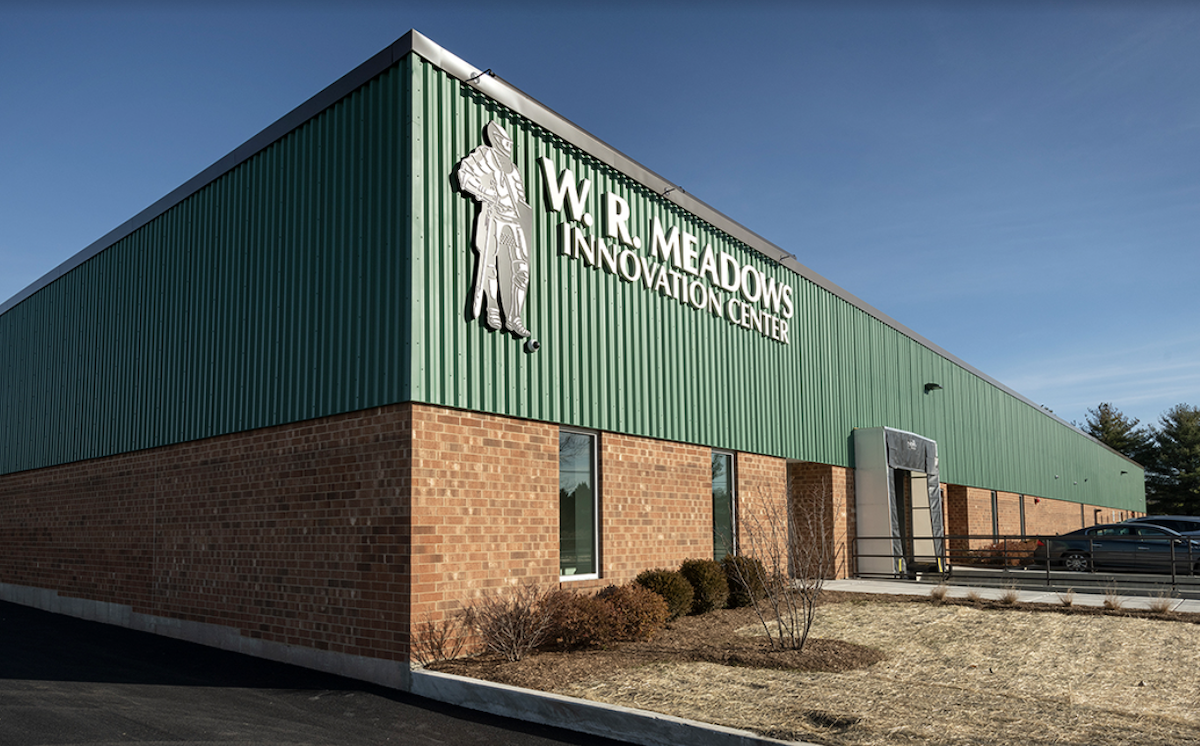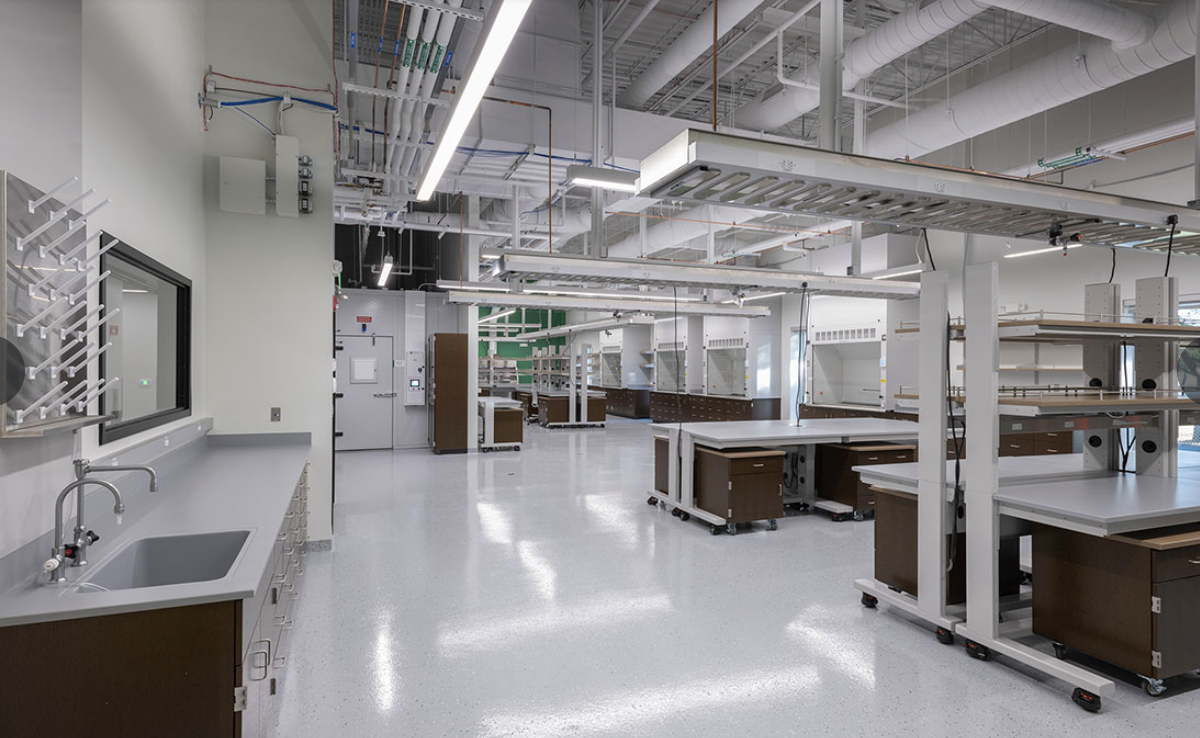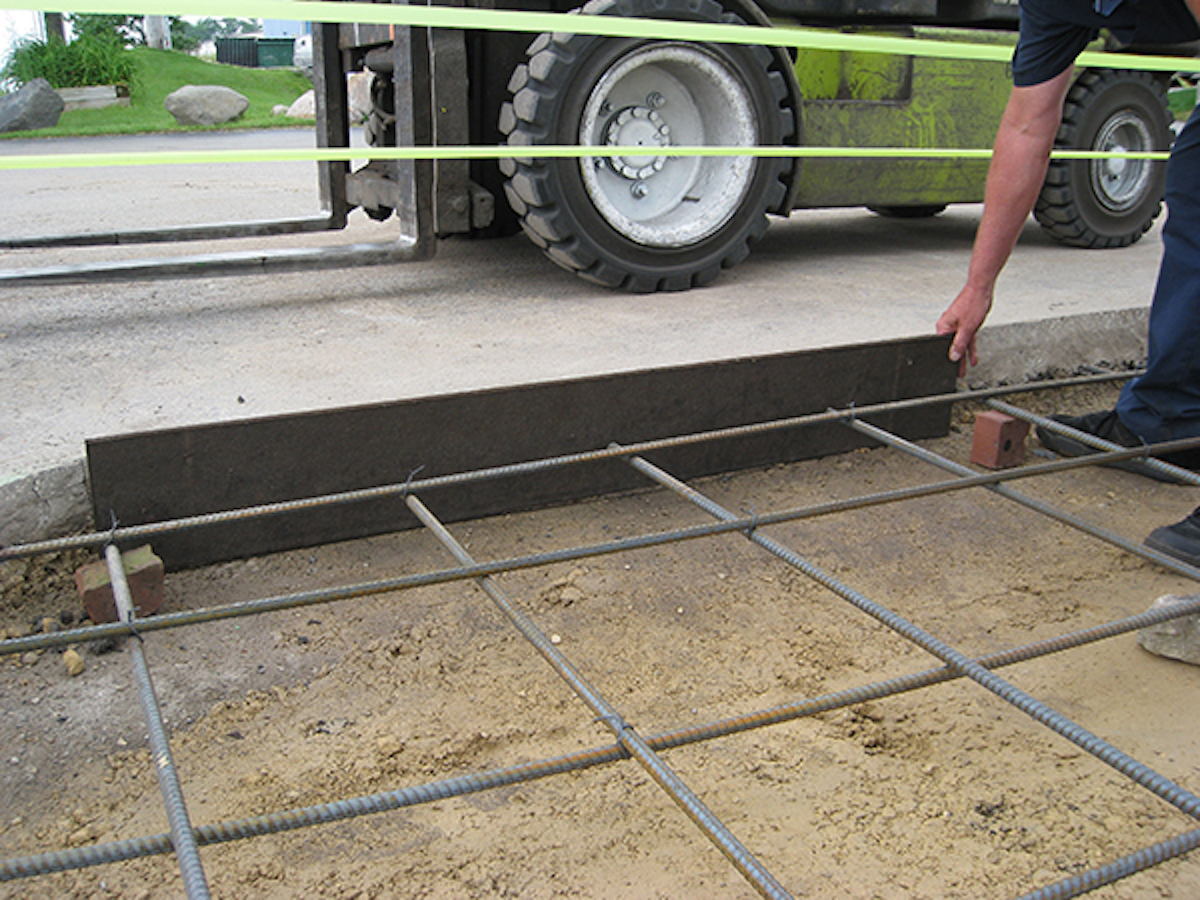In 1926, W. R. “Bob” Meadows and Edna Meadows launched W. R. MEADOWS a company dedicated to designing, manufacturing, and marketing high-quality building materials.
In the nearly 100 years since issuing its first product—an asphalt expansion joint—the company, based in Hampshire, Ill., about 50 miles west of Chicago, has developed more than 350 products, ranging from fiberboard to waterproofing products, which it sells through its authorized distribution network.
W. R. MEADOWS has long focused on sustainability and green building. To strengthen that focus, the company, along with its subsidiary, BLUE RIDGE FIBERBOARD, has pursued the USDA Certified Biobased Product Label for its many biobased products. The USDA Certified Biobased label indicates that the product has been certified by USDA to contain the percent biobased content as shown on the label.
“Within the construction industry, it’s not enough to simply claim that a product is green,” said Kimberly Lombardozzi, WELL AP, LEED AP, LEED AP ID+C, the company’s Sustainability Manager. “The first question we get is always, Where’s the documentation? Reputable architects, engineers, and builders need proof; they are accustomed to complying with LEED requirements,” in reference to the widely used green building rating system.
TESTING AND CERTIFYING KEY TO ACHIEVING USDA BIOBASED PRODUCT LABEL
Products that have been tested, certified, and earned the right to display the USDA Certified Biobased Product Label help to guard against greenwashing—the practice of misleading people about what a company is doing to protect the environment and advance sustainability.
The USDA label tells buyers the biobased content of a product and confirms that part of the product comes from renewable sources (like agriculture, animal, forestry, or marine materials) as opposed to petroleum, which is nonrenewable. Products meeting these biobased testing thresholds contribute to W. R. MEADOWS's biobased goals.
The company offers several products that have third-party-verified biobased content, complying with the stringent criteria set by the USDA's BioPreferred Program, Lombardozzi said.
“It's a declaration of our commitment to exceeding environmental standards," she said. "By prioritizing biobased content, we're not only ensuring compliance with federal mandates but also championing a sustainable future.” Many of the manufacturer's biobased products are also made in America.
W. R. MEADOWS BIOBASED PRODUCTS
FiBRE EXPANSION JOINT, 59% USDA Certified Biobased content, primarily from pre-consumer recycled content wood sourced from sawmill waste including sawdust, bark, chips, slabs, and cuttings from lumber or timber and starch binder.
CORK EXPANSION JOINT, 100% USDA Certified Biobased content from cork.
SELF-EXPANDING CORK EXPANSION JOINT, 100% USDA Certified Biobased content from cork.
BLUE RIDGE FIBERBOARD BIOBASED PRODUCTS
Biobased content is primarily from pre-consumer recycled content wood sourced from sawmill waste including sawdust, bark, chips, slabs, and cuttings from lumber or timber and starch binder.
100% USDA Certified Biobased content goes into these BLUE RIDGE FIBERBOARD products:
PREMIUM INSULATION SHEATHING, an earth-friendly product which permits moisture trapped in exterior walls to escape into the outside air, thereby preventing mold growth and other water-related problems.
SOUNDSTOP, a sound-deadening fiberboard that increases both the sound transmission class (STC) and outside inside transmission class (OITC) values of walls, ceilings, and floors.
STRUCTODEK HD, a fiberboard roof insulation cover board with primed red coating.
CANT STRIP and TAPERED EDGE are widely accepted, high-quality low slope roofing products—durable, lightweight, and environmentally friendly.
INDUSTRIAL BOARD PLAIN – utility panel used for packaging, protective sheets, fire training, air fresheners, etc.
INNOVATION CENTER SEEKS TO DEVELOP WIDER RANGE OF SUSTAINABLE PRODUCTS
In the midst of the COVID-19 pandemic W. R. MEADOWS built an innovation center to explore developing a greater range of sustainable products, looking closely at concrete, asphalt, coatings, and waterproof and weatherproof products.

The company also works closely with its customers and partners as an advocate in the sustainability movement.
“We know that together, we can make a difference, one biobased product at a time,” said Lombardozzi. “We're not just building materials; we're a family-owned-and-operated company building a legacy of environmental stewardship for future generations—one that’s grounded in innovation, responsibility, and a deep respect for our planet.”







